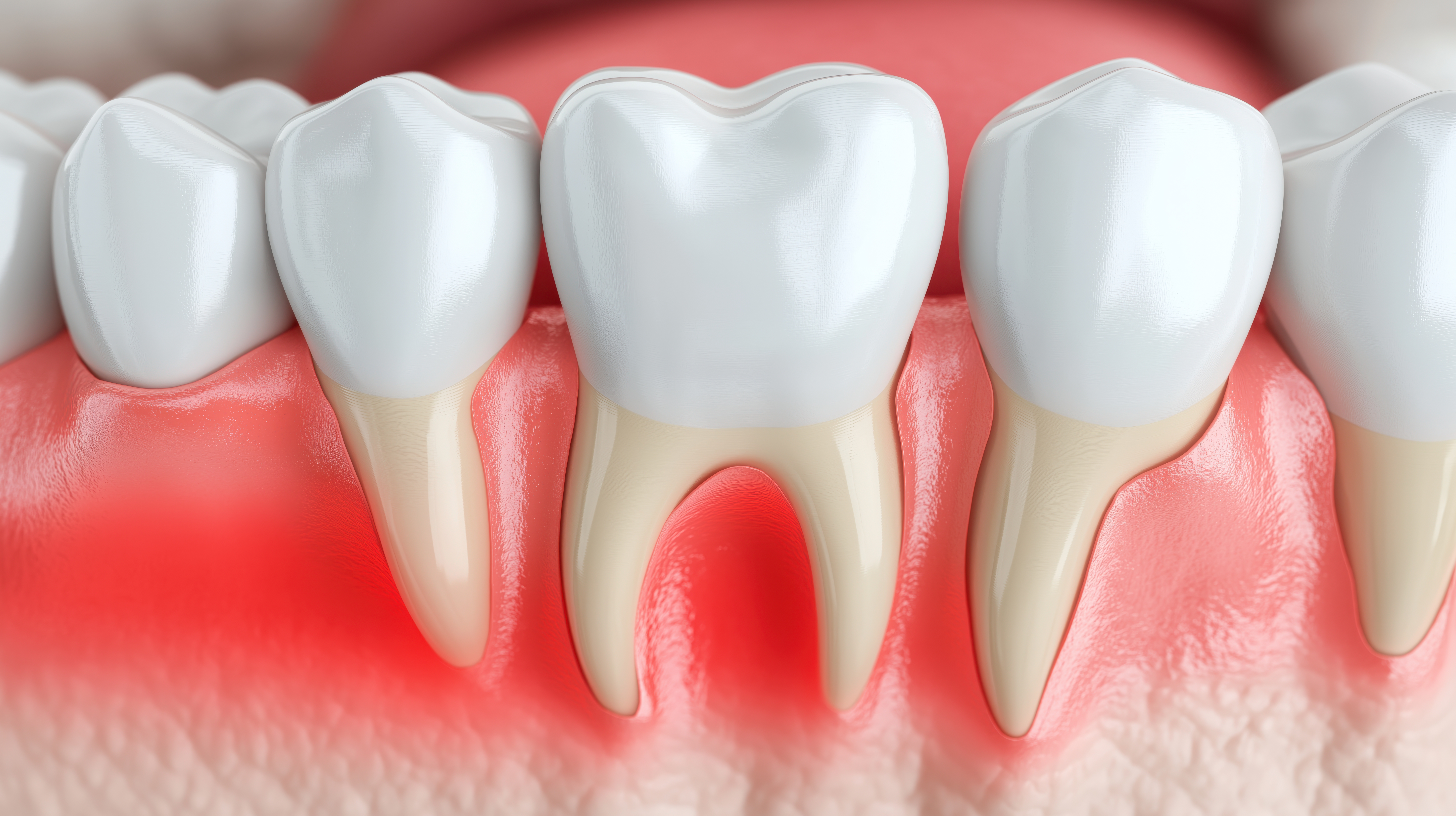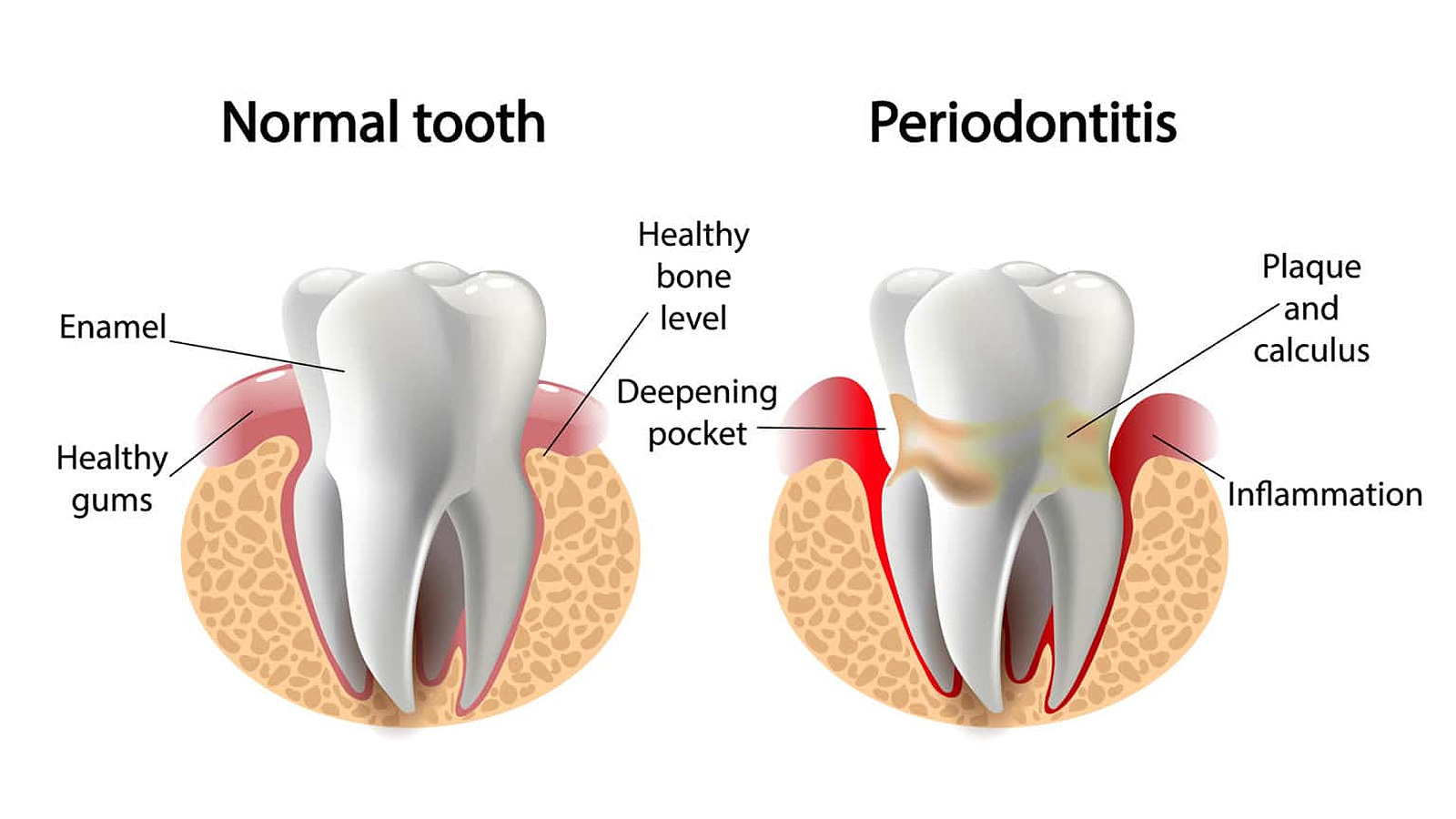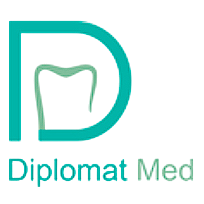Periodontitis — causes, symptoms,
prevention and modern treatment methods

Periodontitis is an inflammatory disease of the periodontal structures, meaning the tissues that hold the tooth in the jawbone: the gums, the periodontal ligament, and the alveolar bone. Unlike gingivitis, which affects only the superficial layer of the gums, periodontitis involves deeper supporting structures and gradually destroys the bone that stabilizes the tooth. If the disease is not treated in time, it leads to tooth loosening and eventual tooth loss. Clinical observations show that periodontitis often progresses silently, and patients typically seek treatment only when the condition has already advanced.
According to data from the European Federation of Periodontology (EFP, 2022), moderate to severe forms of periodontitis are found in up to 50% of adults in Europe, and significant bone loss is observed in 10–15% of individuals over the age of 35. In the CIS countries, based on national dental registry data (CIS, 2023), signs of chronic periodontitis are present in more than 60% of people over 40, and approximately half of these patients seek care only at a late stage of the disease. This emphasizes the importance of regular diagnosis and prevention.
Mechanism of Periodontitis Development
The primary cause of inflammation is dental plaque and mineralized deposits — dental calculus (tartar). Pathogenic bacteria form a dense biofilm that triggers chronic inflammation. The immune system attempts to respond to the infection, but prolonged inflammation gradually destroys the connective tissue fibers and bone surrounding the tooth. Over time, deep periodontal pockets form, and the tooth loses its structural support.
Smoking has been shown to be one of the major risk factors. A meta-analysis published in the Journal of Periodontology (Tomar & Asma, 2000) demonstrated that smokers are 2–3 times more likely to develop severe periodontitis. Nicotine impairs microcirculation and reduces the regenerative capacity of tissues, making the disease more aggressive in smokers.
Systemic diseases also accelerate the progression of periodontitis. In patients with diabetes, chronic inflammation is associated with impaired microcirculation and elevated levels of pro-inflammatory cytokines. The relationship between these two conditions is bidirectional: periodontitis worsens blood glucose control, and diabetes accelerates tissue destruction.
Symptoms and Early Signs
The earliest warning sign is gum bleeding during brushing or eating. Patients may also notice persistent bad breath, pressure or swelling in the gum area. Over time, gum recession develops, leading to exposed tooth roots and increased sensitivity to hot and cold. In later stages, tooth mobility appears, and in severe cases, purulent discharge may come from periodontal pockets.
It is important to understand that the absence of pain does not mean the absence of disease. Periodontitis is a chronic condition that destroys tissues progressively and often without noticeable symptoms.

Prevention of Periodontitis
Prevention is based on regular oral health monitoring and good oral hygiene practices. Dentists recommend scheduling a professional dental cleaning every 6 months, or every 3–4 months if risk factors are present. Using dental floss, an interdental brush, or an oral irrigator, along with a soft toothbrush, helps effectively remove plaque from hard-to-reach areas.
Equally important is the treatment of dental caries and the replacement of poorly fitted restorations to eliminate sources of chronic irritation.
Modern Treatment Methods for Periodontitis
Non-Surgical Treatment
In the early stages, scaling and root planing are performed — removal of hardened subgingival and supragingival deposits and smoothing of the root surface. This reduces bacterial load and helps the gum reattach to the tooth.
Surgical Methods
In cases of deep periodontal pockets, flap surgery may be performed. In some situations, regenerative techniques are used — bone graft substitutes and membranes to restore lost bone volume.
Maintenance Therapy
After active treatment, the patient enters a supportive care program, involving periodic cleanings and monitoring to maintain long-term stability and prevent relapse.
Periodontitis and General Health
The link between periodontitis and systemic diseases has been confirmed by numerous scientific studies. A study by Offenbacher et al. (2001) demonstrated increased risks of premature birth and pregnancy complications associated with periodontal inflammation.
Additionally, bacteria from periodontal pockets can enter the bloodstream, increasing the risk of atherosclerosis and cardiovascular complications. Therefore, treating periodontitis is essential not only for preserving teeth but also for maintaining overall health.
Treatment of Periodontitis at Diplomat Med Center
At Diplomat Med Center, treatment is approached comprehensively with consideration for the health of the entire oral cavity. We perform professional ultrasonic cleaning and AirFlow therapy, provide medication-based and laser treatment, and when necessary — minimally invasive surgical methods and bone regeneration procedures.
Before starting treatment, full oral sanitation is carried out: caries treatment, tooth restoration, and removal of traumatic factors. This ensures a stable and long-lasting result.
In addition to periodontitis treatment, we offer a full range of dental services including therapeutic dental treatment, pediatric dentistry, orthodontics, aesthetic restoration, and dental prosthetics.
Diplomat Med Center is a modern dental clinic in Chișinău, providing comprehensive care for gum health and the beauty of your smile.
Schedule a consultation today — we will help you preserve your teeth and restore confidence in your smile.
